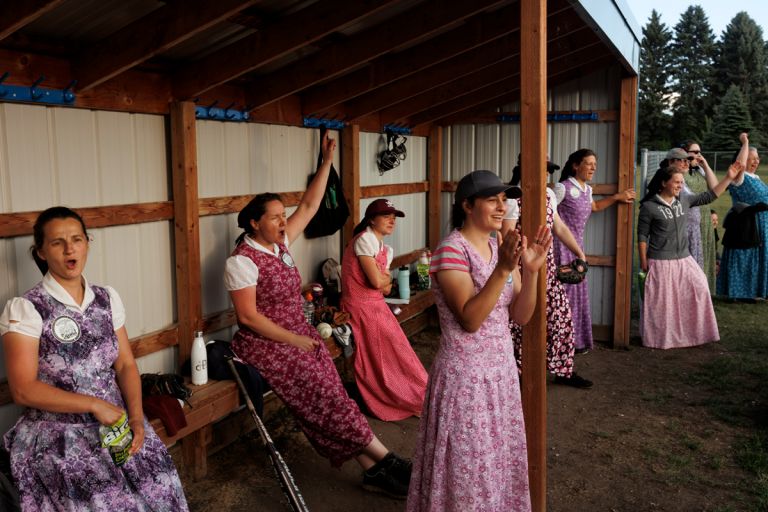In The World But Not Of It
The Hutterites, anabaptists whose roots trace back to the 16th Century Radical Reformation, live communally on colonies throughout western Canada and the north-western United States. Their culture continues to be preserved through deliberate separation from mainstream society and economic self-sufficiency.
The Hutterites are currently in the midst of one of the most successful periods of their approximately 500 year history. Members are provided for throughout their entire lives and on the whole experience less of the loneliness and isolation prevalent in the modern world. Their belief in the importance of engagement in family life, social life and spirituality, and the defined purpose for their lives means Hutterite communities meet many of the requirements to be considered Blue Zones; area’s where health, happiness and life expectancy rates are higher than average. Loneliness is rarely an issue in Hutterite communities, where members work, play, eat, pray, laugh, celebrate and mourn together.
The Hutterites believe that their separation from society offers them a better way to god, but the system also provides lessons in connection and sustainability that we can all learn from. Hutterite colonies are kept small, typically under 200 people to maintain strong social bonds, and emphasis is placed on the community as a whole rather than any individual. One often-told anecdote is that the Hutterites have never recorded a single murder in their history. Despite the pressures of the outside world, the Hutterites continue to be the most successful model for communal living in modern western history.
The Hutterites are often either romanticized or denigrated as simple, backwards, quaint and/or old fashioned. The reality is that their society is very complex and nuanced. Each colony must decide how rigidly they cling to their traditions verses how much they adapt to the increasingly encroaching outside world. The Minister is burdened with ensuring the colony stays on a path to godliness rather than worldliness. As Hutterite author Paul S. Gross wrote “We cannot please the world and God at the same time … Either we take this world with all it offers, including trouble, mental stress, sorrow, and death at the end; or else we take a better way.









